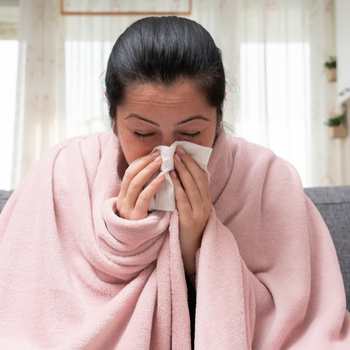Sinusitis Q & A
How is sinusitis diagnosed?

Diagnosing sinusitis often starts with an exam, where your practitioner evaluates your current symptoms, previous medical history, and family medical history. The next step is a physical exam looking for telltale signs of infection. Occasionally, it involves drawing blood and testing it to check for inflammatory markers, infections, and allergies, to name a few.
Because recurrent cases of sinusitis often stem from unknown allergies, your allergist may suggest having a skin test, too. This minimally invasive in-office procedure involves applying tiny amounts of known allergens to your skin.
Your allergist gently scrapes your skin, which allows the allergens to penetrate. If you develop a small bump or rash in the area, it’s a warning sign that you’re probably allergic to the substance. One of the biggest benefits of having a skin test is that you can get results on the spot and leave your appointment knowing exactly which allergies you have.
Part of your sinusitis evaluation could also involve going through immunoglobulin deficiency testing. This cutting-edge technology can help your practitioner determine if you lack certain antibodies that are needed to fight off foreign invaders. If you’re deficient in immunoglobulins, you could be more prone to infections.
What is the treatment for sinusitis?
Once the team at Allergy Testing Center better understands what’s triggering your sinusitis, they will work with you to find the best possible treatment options. Your sinusitis treatment plan could include:
- Saline nasal spray
- Nasal or oral corticosteroids
- Mucolytics (e.g., Mucinex) or decongestants
- Antibiotics or antifungal medications
- Allergy or anti-inflammatory medications
Many chronic sinusitis sufferers find that immunotherapy helps, too. Immunotherapy involves getting a series of allergy shots over several months to gradually teach your body not to overreact to allergens.
Can I prevent sinus infections?
While you can’t prevent every sinus infection from occurring, you can take several measures to minimize future issues with sinusitis. Whether you have acute or chronic sinus infections, it’s important to:
- Avoid known allergens
- Decrease your exposure to pollution and secondhand smoke
- Wash your hands frequently to decrease your risk of getting colds and cases of flu
The team at Allergy Testing Center can teach you lifestyle changes to decrease your exposure to allergens and prevent recurring sinus infections.
Before your next sinusitis flare-up occurs, schedule an exam at Allergy Testing Center online or call the location nearest you.
